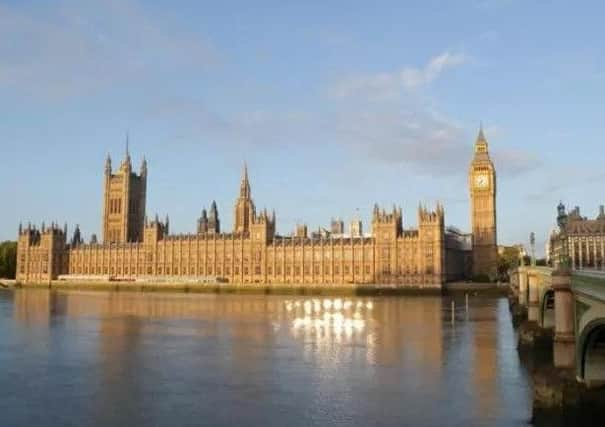Direct rule a risk for Sinn Féin...for now


Beneath the upper echelons of the party, much of grassroots unionism is positively gung-ho about seeing Stormont go under and Westminster re-take control.
At a glance, such optimism is well-founded: Unlike the years of Labour’s constitutional neutrality, there is an openly unionist Prime Minister in Downing Street; on top of that, the DUP holds the balance of power in the Commons, giving it a handbrake on any decision of which it disapproves; and, for those unionists who either opposed sharing power with Sinn Féin or who squirmed at the compromises such an arrangement necessitated, direct rule would immediately lessen Sinn Féin’s political hard power.
Advertisement
Hide AdAdvertisement
Hide AdHowever, aside from the party’s political philosophy – the DUP has for decades been a devolutionist party, believing that being in power not only provides better government, but is a bulwark against potentially untrustworthy Westminster leaders – there are several significant risks for Arlene Foster and her colleagues from direct rule.
The most obvious chink in the party’s armour is on what it once termed ‘moral issues’ – areas such as abortion and gay rights.
In June it took Labour backbencher Stella Creasy just hours to extract a major policy change from the government which made it easier for Northern Ireland women to access abortions in England.
That was an epiphany of sorts for some in the DUP, giving them a portent of what may be to come. They knew that the issue wasn’t that the government had let them down, but that government whips would not be in a position to order their MPs (on an issue which is a matter of conscience) to vote down Ms Creasy’s proposal.
Advertisement
Hide AdAdvertisement
Hide AdIt is likely that when James Brokenshire brings the Stormont budget before Westminster in just over a week that at least one mischievous MP will attempt to amend it in some way which irks the DUP.
Nevertheless, the principle threats to the DUP are overwhelmingly tactical and, more acutely, personal in that 28 MLAs – including Arlene Foster – ultimately face the end of their careers if Stormont doesn’t return while scores of party workers would also be left looking for alternative employment.
By contrast, direct rule’s risks for Sinn Féin seem far more strategic. The party, which has seen Stormont as a step on the road to a united Ireland and which has presented itself to middle nationalism as ultra-pragmatic, would be excluding itself from the two legislatures in which it could represent those constituents.
Complaints about ‘Tory austerity’ or anything which the DUP is doing at Westminster will be met with the riposte: If you’re serious about stopping it, get back into Stormont.
Advertisement
Hide AdAdvertisement
Hide AdThere is a possibility that an angry backlash over a messy Brexit and nationalist resentment at what could quickly become DUP arrogance at Westminster will lead to growing support for a united Ireland. But there can be no guarantee.
Nor is there much evidence from the Republic – where Fine Gael and Fianna Fáil have used the Stormont crisis to present Gerry Adams as a wrecker who can’t be trusted with government power and Sinn Féin’s poll numbers have hardly moved in a year – that constitutional anarchy in the north will prompt a surge which will carry Sinn Féin into government in the Oireachtas.
But there is one supreme threat to the DUP, though it may never materialise. Should this shaky Government fall and Jeremy Corbyn become Prime Minister, unionism without Stormont would be acutely vulnerable.
That may yet be the strongest card which Arlene Foster has to play if she is to persuade grassroots unionists to support a compromise deal with Sinn Féin in order to resurrect Stormont
Advertisement
Hide AdAdvertisement
Hide AdHowever, returning Stormont under the current rules would be of limited comfort in that scenario because Sinn Féin could make fresh demands, knowing that if they were not met they could collapse Stormont and go to direct rule under a Corbyn government.